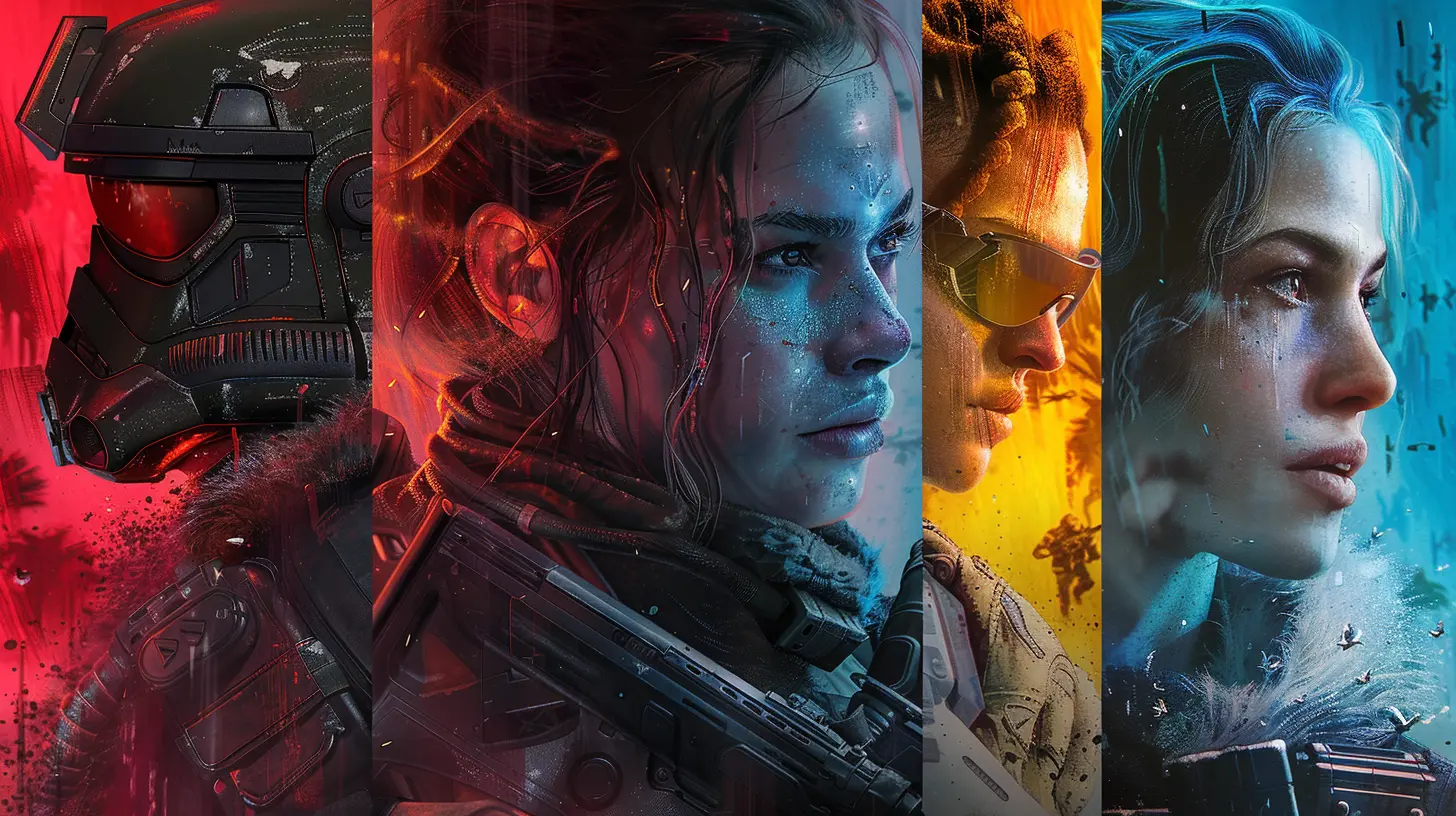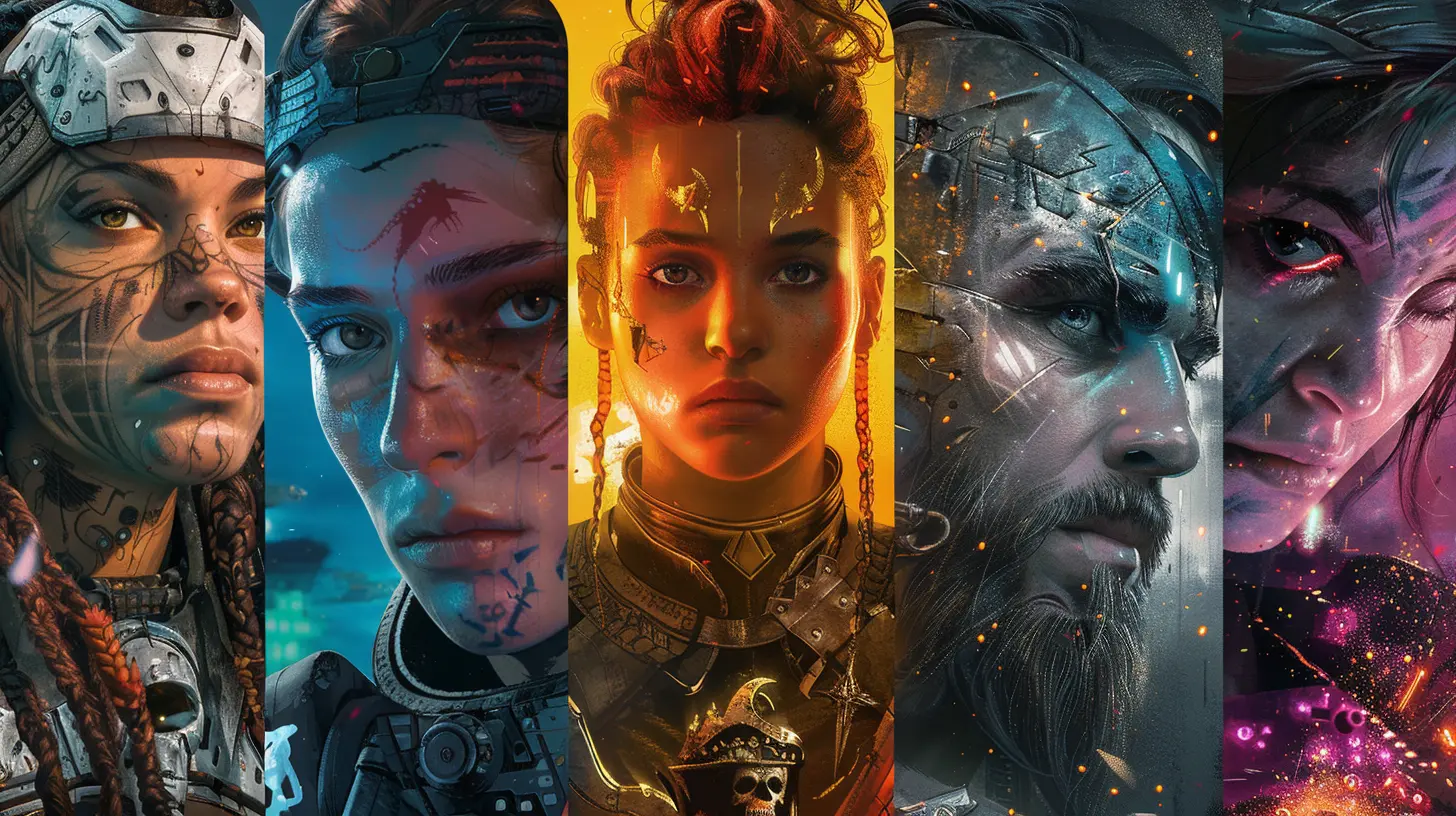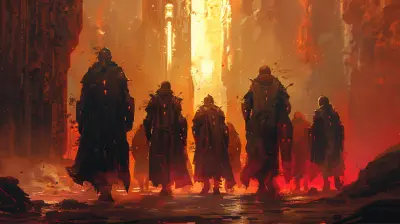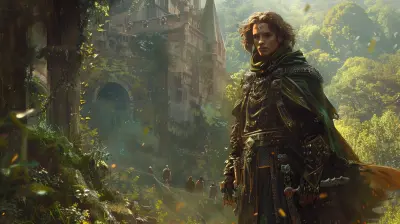Inside the Minds of Game Awards Judges
3 July 2025
Ever wondered who decides which video game gets crowned Game of the Year? Who gets to tell us that this game changed the industry, or that one pushed storytelling to new heights? Welcome to the often mysterious, sometimes controversial, always intriguing world… inside the minds of Game Awards judges.
Let’s be real—the Game Awards are kind of the Oscars of the gaming world. Millions of people tune in, devs hang on every word, and fans light up (or burn down) the internet depending on who wins. But who are the people behind these decisions? What guides their choices? And how do we know it’s fair?
Let’s dive deep into the mindset of these elite decision-makers and find out what’s going on behind the controller—err, curtain.
Who Are the Game Awards Judges, Anyway?
Before we get into what they’re thinking, let’s break down who they even are.The Game Awards don’t just pull names out of a loot box. The judges are mainly a panel of global media outlets—think IGN, GameSpot, Kotaku, Eurogamer, and a bunch more. Over 100 respected gaming media outlets worldwide get ballots.
These are folks who live and breathe games. They're critics, editors, and journalists. Each outlet gets to submit a ballot for every category, choosing their top picks. Then, Geoff Keighley and his team tally votes.
But here’s the kicker: fan votes only account for 10% of the final decision. The rest? That’s all on the panel.
So yeah, your tweetstorm probably didn’t change that GOTY pick.
What Makes a Game a "Game of the Year"?
Let’s not sugarcoat it: picking one game to rule them all is HARD.Judges aren't just going, “Eh, that one had cool graphics.” Nope. They’re juggling a long list of things:
- Gameplay Mechanics – Is it smooth? Innovative? Did it keep us hooked?
- Narrative – Did it punch you in the feels? Were the characters unforgettable?
- Art Direction – Beautiful visuals or a unique style can seriously leave a mark.
- Audio and Music – Think of the eerie silence in The Last of Us or the thumping adrenaline of DOOM.
- Innovation – Did the game do something totally new?
It’s not a checklist so much as a feeling. It's like trying to pick the best pizza when all of them are delicious—but some have a crust that just melts in your mouth.
So when judges sit down to decide the top game, they're measuring impact. Did this game push the industry forward? Did it stay with me after the credits rolled?
Do Judges Play Every Game?
Let’s clear the air here.A common myth is that each judge has played every nominated game top to bottom. Imagine trying to 100% Elden Ring, God of War: Ragnarok, and Xenoblade Chronicles 3 in a few weeks. Nope. Even the most dedicated reviewers have limits.
Most of these media outlets work as a team. Someone on staff has reviewed or played each game in some capacity. Then they’ll discuss, debate, and come to a joint decision on their rankings.
Think of it like a fantasy football draft—but instead of touchdowns, it’s boss fights and plot twists.
The Human Side: Biases, Fandom, and Flaws
Okay, real talk. Judges are human. And humans aren’t robots (despite Elon’s best efforts).Every judge brings their own preferences, tastes, and yes—biases. Some might favor open-world exploration. Others go nuts for story-rich RPGs. And don’t get me started on the Nintendo diehards.
Is that a bad thing? Not really. That diversity is what makes the judging panel strong. But it’s also why you’ll never please everyone.
Ever seen a fan meltdown when their favorite game didn’t win? Yeah. That’s why.
How Votes Actually Work
The voting isn't just a bunch of people yelling in a group chat (though that would be funny).Each outlet submits a ranked list of nominees for categories like Game of the Year, Best Narrative, Best Art Direction, etc. Every game on that list earns a certain number of points based on its placement.
Then the votes are counted across the globe.
Fun fact: judges don’t see what others voted for until the show airs. So when the host says, "And the winner is..." everyone is in for a surprise—including the judges.
Why Some Games Get Snubbed
Now here’s the juicy part that gets Reddit threads spinning: the snubs.How the heck did [Insert Game Here] not even get nominated?
Well, timing plays a big role. Games released too late in the year may miss the cutoff to be included. Others might not have enough time to be properly evaluated.
And then there are games that just… didn’t connect with enough judges.
Just like movies, some games go under the radar. Maybe a brilliant indie had incredible mechanics but lacked visibility. Maybe a AAA title burned bright but flamed out halfway through.
It’s not always fair, but it is real.
The Pressure of Influence
Being a judge for The Game Awards isn’t all power and pizza rolls. There’s pressure—big time.Their votes don’t just earn bragging rights. Winning a Game Award can mean increased sales, industry recognition, and possible sequels.
That’s a lot of weight. And judges know it.
Many of them take the responsibility seriously. They research, review, replay, and reflect. They look beyond the hype and ask tough questions.
Is this game really that good, or just super loud on Twitter right now?
Behind the Curtain: Inside a Judging Room
Let’s imagine what it’s like inside a media outlet during voting week.You’ve got editors arguing over whether storytelling in Pentiment was more impactful than God of War. Someone else is passionately defending Stray because, hey—cats.
It’s a mix of head and heart. These debates can get heated, but they’re rarely petty.
And in the end, each outlet sends in what they believe is their most considered, honest vote. Love or hate the results—that’s the process.
How Indie Games Manage to Shine
You might think only the big budget, AAA games can compete. But indie titles often sneak in and sometimes even win categories. Games like Hades, Celeste, and Inside have turned heads.Why? Because judges aren’t just swayed by flash. They care about heart, originality, and execution.
A beautifully told indie can outshine a bloated sequel any day. It’s David and Goliath, video game edition.
The Role of Emotion in Judging
Games aren’t math problems. They’re emotional experiences.Judges remember how a game made them feel. That tearjerker moment. That goosebump-inducing score. That adrenaline-fueled boss battle.
When it comes down to the final ballot, emotion often tips the scale. That’s why some underdogs win. It’s not always about polish—it’s about passion.
Fan Expectations vs. Judge Realities
Here’s where things get spicy.Fans want their favorite game to win—duh. But judges are working within their own, often broader, frameworks. They’ve played dozens of games in a year, while some fans only dive deep into a few.
So the perspectives can be totally different.
Even if a game has a massive player base, it doesn’t guarantee a win. Judges are weighing multiple factors, not just popularity. Which is why Minecraft hasn’t won every year since 2011.
Are the Game Awards Truly Fair?
Short answer? As fair as it gets—for now.The process isn’t perfect. There’s room for improvement in transparency, indie representation, and timelines. But it’s not some dark conspiracy.
It's a system filled with people who care about games. People who want to highlight the best of an incredible, fast-moving, creative industry.
And while we may not always agree with their picks, we can appreciate the thought that (usually) goes into them.
The Future of Game Awards Judging
With gaming growing every year, judging will evolve too.We might see more inclusion of streamers, developers, or even community-voted panels. Maybe one day, AI will help parse metrics for fairness (though let’s hope we still keep the human touch).
One thing’s for sure: as games get more complex, so does picking the best one.
And hey, if nothing else—you’ll always get a spicy year-end debate out of it.
Final Thoughts: It’s All Love for the Games
At the end of the day, Game Awards judges aren’t out to ruin your favorite game’s big moment. They’re out to celebrate what makes gaming magical.They’ve spent countless hours behind screens, controllers in hand, chasing dragons, crunching loot, and saving the world—just like you.
Their job? To shine a spotlight on what moved us, entertained us, maybe even changed us this year.
So next time your Game of the Year pick doesn’t win, take a breath. Then pick up the controller and create your own story.
Because in the end? The real game of the year is the one you can’t stop thinking about.
all images in this post were generated using AI tools
Category:
Game AwardsAuthor:

Leif Coleman
Discussion
rate this article
2 comments
Idris McNeil
This article sheds light on the passion and dedication of judges. Grateful for their commitment to celebrating gaming excellence!
November 20, 2025 at 5:11 AM

Leif Coleman
Thank you! I appreciate your acknowledgment of the judges' hard work and dedication to recognizing gaming excellence.
Adam Willis
This article offers a fascinating glimpse into the judging process behind game awards. Understanding the judges' perspectives enhances appreciation for the nominees and winners, showcasing the complexity and passion involved in recognizing gaming excellence. Great read!
July 15, 2025 at 3:37 PM

Leif Coleman
Thank you for your feedback! I'm glad you found the insights into the judging process valuable. Your appreciation for the complexities of game awards means a lot!


